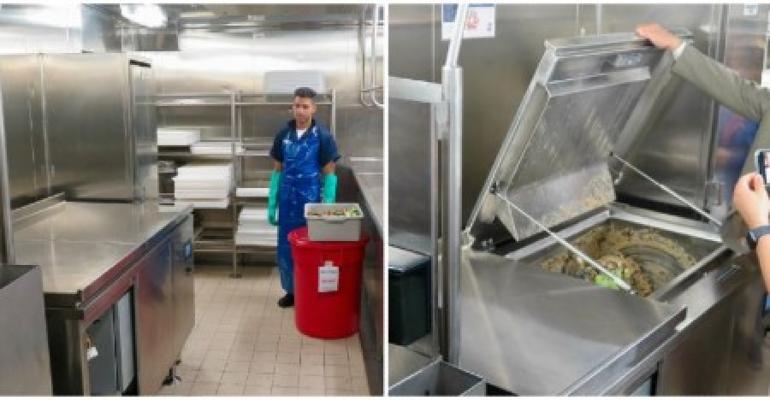This means the company is well on its path toward a 50% reduction by 2030.
To achieve its goals, Carnival Corp. has taken steps to minimize unused food shipboard across its food preparation and dining services. In addition, the company has invested in advanced waste management technologies such as biodigesters to naturally break down and responsibly dispose of unused food.
The food waste reduction initiatives are part of Carnival Corp.'s circular economy objectives to use fewer resources, produce less waste and maximize recycling, while also helping to reduce environmental impact and greenhouse gas emissions.
'It's a labor of love to serve amazing meals to millions of guests each year while making sure we manage it in the most sustainable way possible,' said Bill Burke, chief mariime officer, Carnival Corp. 'It's a virtuous cycle from start to finish that reduces our environmental footprint while ensuring the extraordinary guest experiences that make our world-class cruise lines stand out.'
Innovative solutions such as AI
Several practical, technological and educational initiatives are in place to cut food loss while continuing to deliver exceptional dining experiences. By monitoring and analyzing guest dining trends and flow, including using AI technology, Carnival Corp. is optimizing food use at every step on board its ships, from purchasing fresh ingredients, recipe creation and menu design, to real-time meal prep, creation and presentation techniques and in-suite dining.
Many of the company's brands have also implemented shipboard awareness campaigns to educate passengers and crew n doing their part to help reduce food waste. Plus, Costa Cruises works with a network of registered food banks in communities it visits to deliver hundreds of thousands of surplus ingredients and meals to people in need.
Carnival Corp. said it continues to explore ways to reimagine recipes to get the most out of every possible ingredient. Whether transforming orange peels into citrus muffins or unserved bread into croutons, the company's culinary teams are seeking ways to use every ingredient to its fullest.
More than 600 biodigesters
Carnival Corp. ships have more than 600 food waste biodigesters that house naturally occurring bacteria to organically break down and liquify 80% of uneaten food to just a fraction of the original volume. This diverts waste from landfills where natural decomposition would otherwise slowly release methane, a greenhouse gas.
As a result, in 2023, the company has avoided more than 31,000 metric tons of equivalent greenhouse gas emissions that would have been generated.
Food dehydrators
In addition, installing technologies such as dehydrators builds on the effectiveness of biodigesters by enabling the ships to sustainably break down a wider range of food items, including fruit and vegetable rinds, animal fats and other solid foods that are traditionally harder to break down.
To date, the company has installed more than 40 food dehydrators across the fleet to remove excess water from leftover food, reducing waste volume by up to 90%.
Copyright © 2024. All rights reserved. Seatrade, a trading name of Informa Markets (UK) Limited.
Add Seatrade Cruise News to your Google News feed.  |

